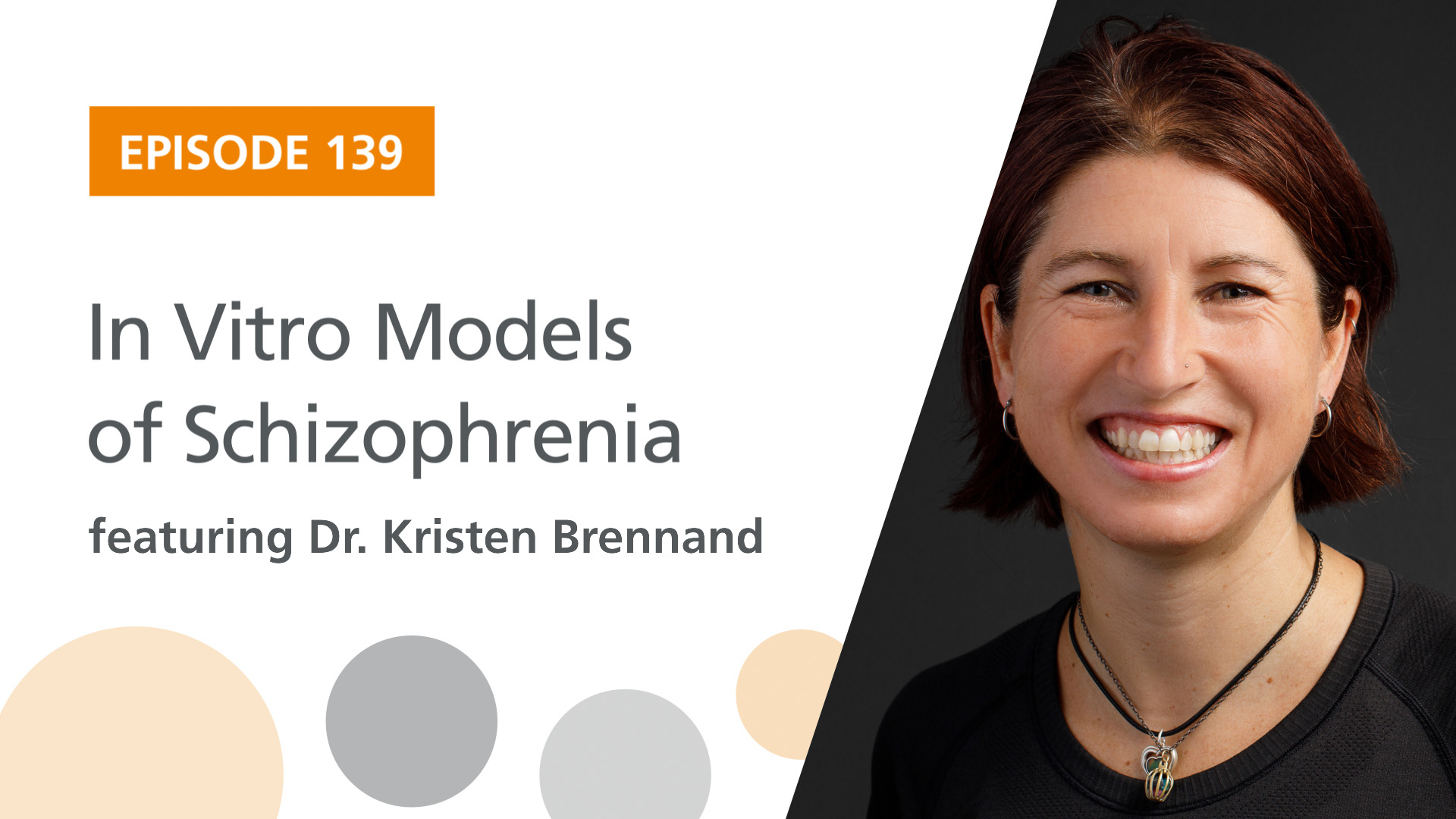
Podcast: Play in new window
Guest:
Dr. Kristen Brennand is an Associate Professor of Genetics and Genomics, Neuroscience, and Psychiatry at the Icahn School of Medicine at Mount Sinai in New York. A major focus of her work is in developing in vitro models for schizophrenia in order to identify novel insights into the molecular and cellular phenotypes of mental illness. Her lab has established a new mechanism using iPSC-based models to systematically test the impact of causal variants in human cells.
Featured Resource:
- Subscribe to Neural Cell News
- Dr. Kristen Brennand Webinar: Using hiPSCs to Study Genetic Variants Linked to Schizophrenia
Resources and Links
Testicular Graft Produces Sperm and Live Offspring – Primates that had prepubertal testicular tissue removed, frozen, and grafted back later in life were able to produce sperm and offspring.
Using Cardiac Organoids for Drug Screening – Cardiac organoids were used to identify pro-regenerative drugs without detrimental side effects on cardiac function.
A Common Embryonic Origin of Neural Progenitors – Investigators have found that in mice, a single population of neural progenitors contributes to lifelong neurogenesis in the hippocampus.
New Brain Cells Made throughout Life – Scientists have shown that humans can make new brain cells into their nineties, but this production progressively declines in individuals with Alzheimer’s disease.
Using Phenotypes to Identify Schizophrenia Genes – Researchers have developed a phenotypic atlas of schizophrenia-associated genes, and identified 30 genes for further study.
Photo Reference: Courtesy of Dr. Kristen Brennand

